

Testing Salesforce Vs Other Technologies
Explore key differences in Salesforce testing vs other techs. Learn challenges testers face & smart ways to overcome them for better QA outcomes.
By Gurumoorthy Manickam
Lead Test Engineer
Testing Salesforce Vs Other Technologies
Hi Salesforce nerds! We welcome your participation as we go to learn about the unique testing environment at Salesforce and acquire knowledge about how to improve your testing procedures in an ever-changing cloud environment.
Every platform in the ever-changing world of technology has its own quirks and difficulties, and Salesforce is no exception. Salesforce brings unique features to the testing arena as a cloud-based customer relationship management (CRM) solution that distinguishes it from other technologies. We will break down the technical aspects of testing the Salesforce ecosystem and examine how it varies from traditional testing methods in this blog post. We'll explore the distinctive features that make using Salesforce in comparison to other platforms necessitate a tailored testing approach, from declarative customization to the continuous release methodology.
Key Distinctions:
Testing in Salesforce, as compared to other technologies, exhibits both similarities and differences. Here are key distinctions in terms of testing between Salesforce and other technologies:
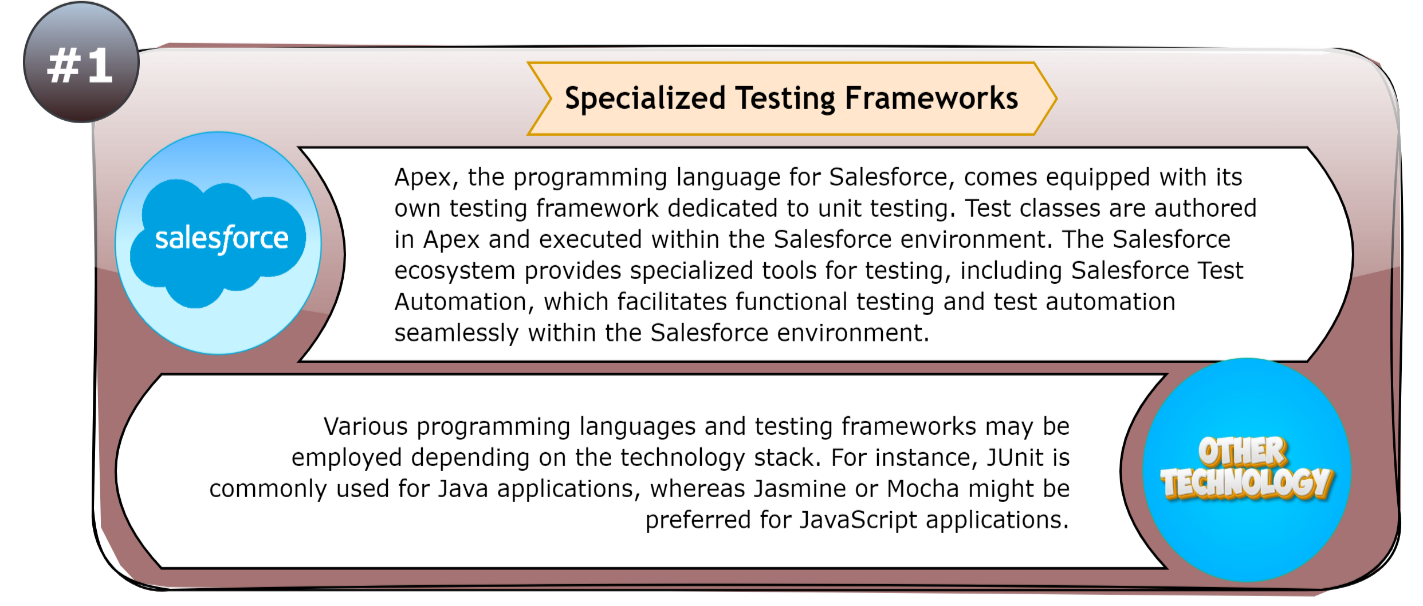
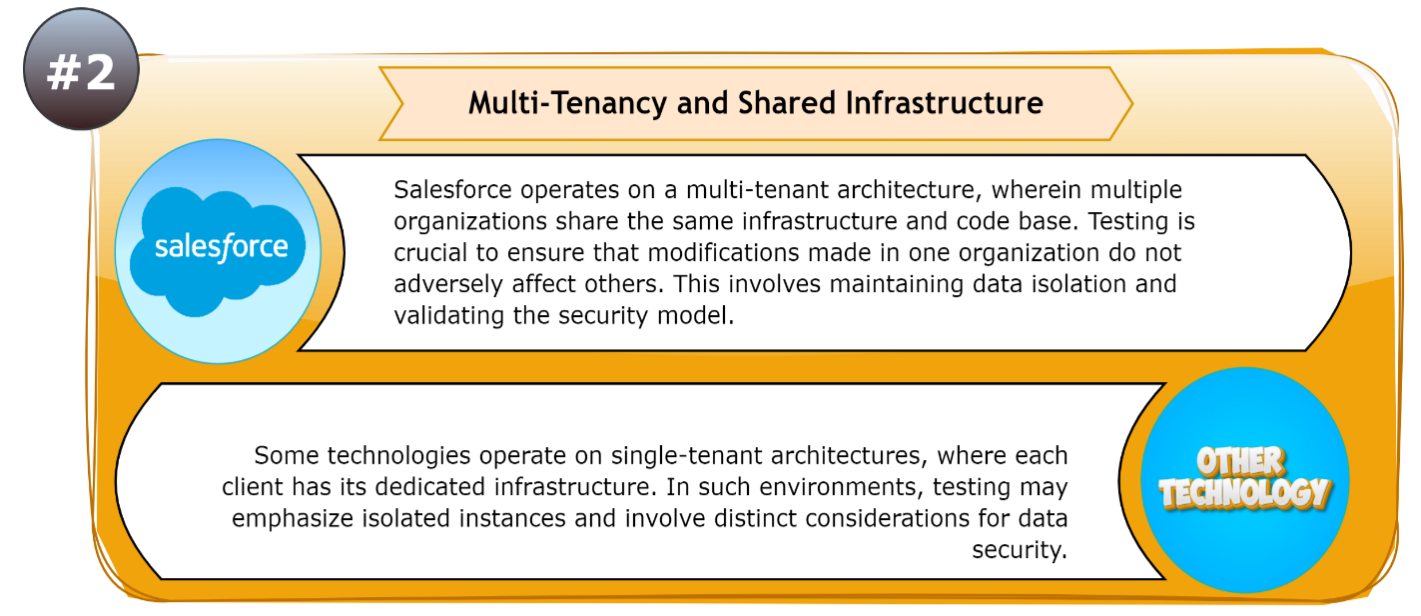
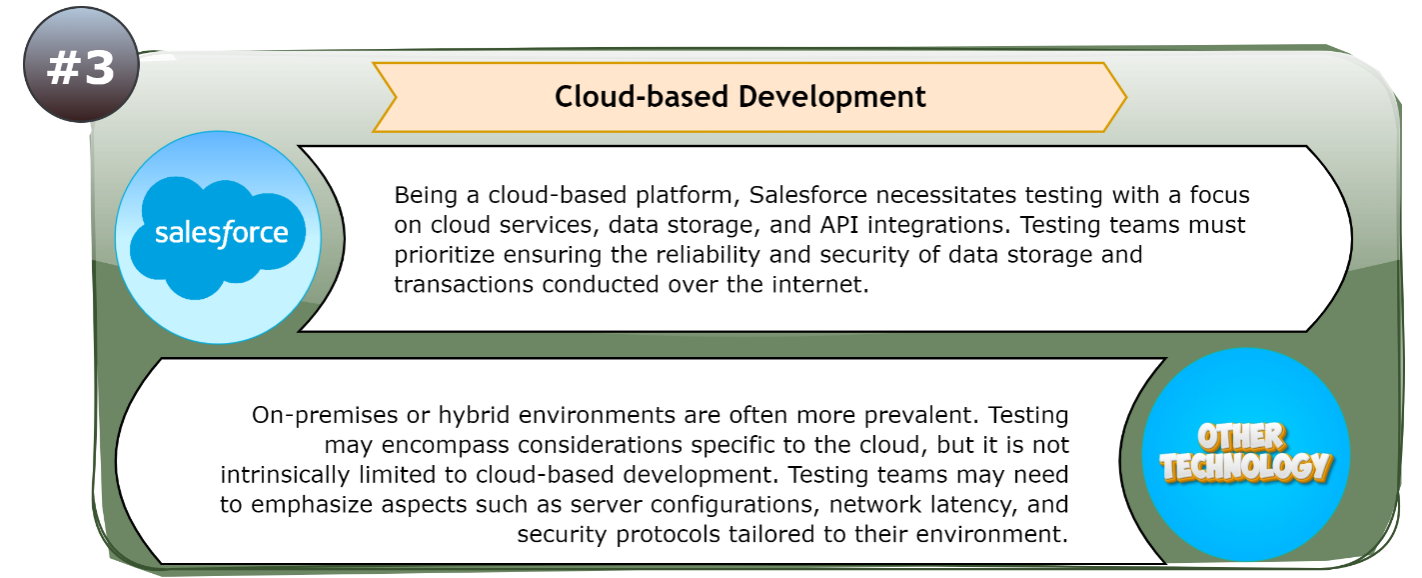
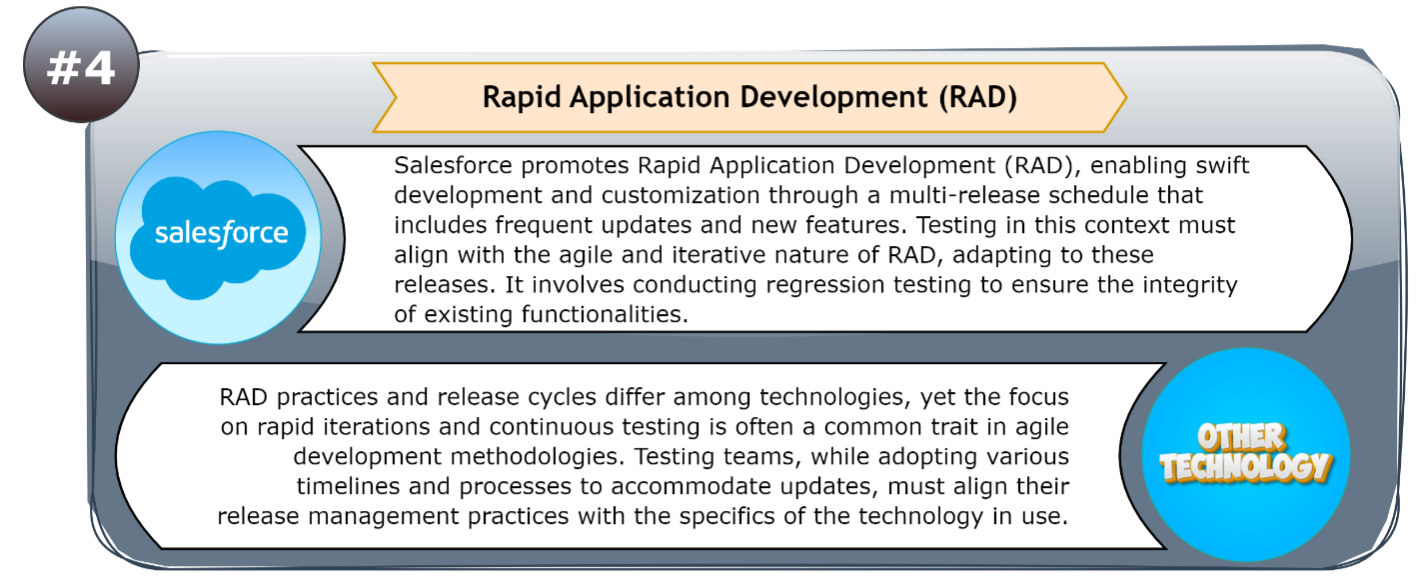
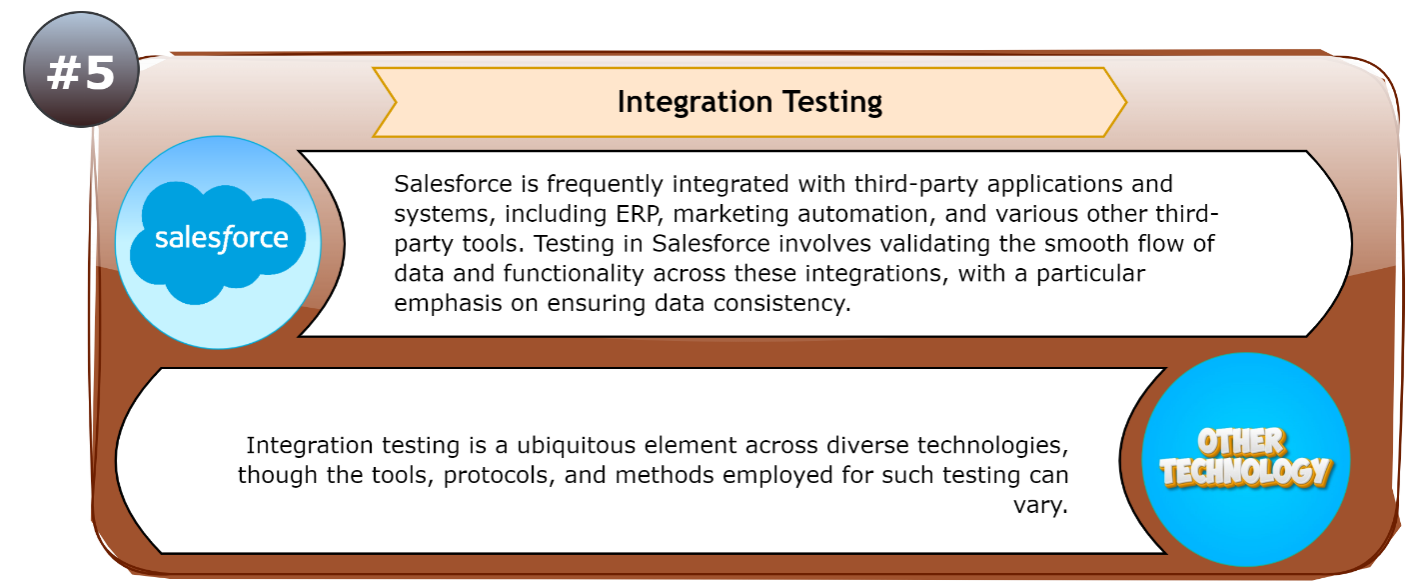
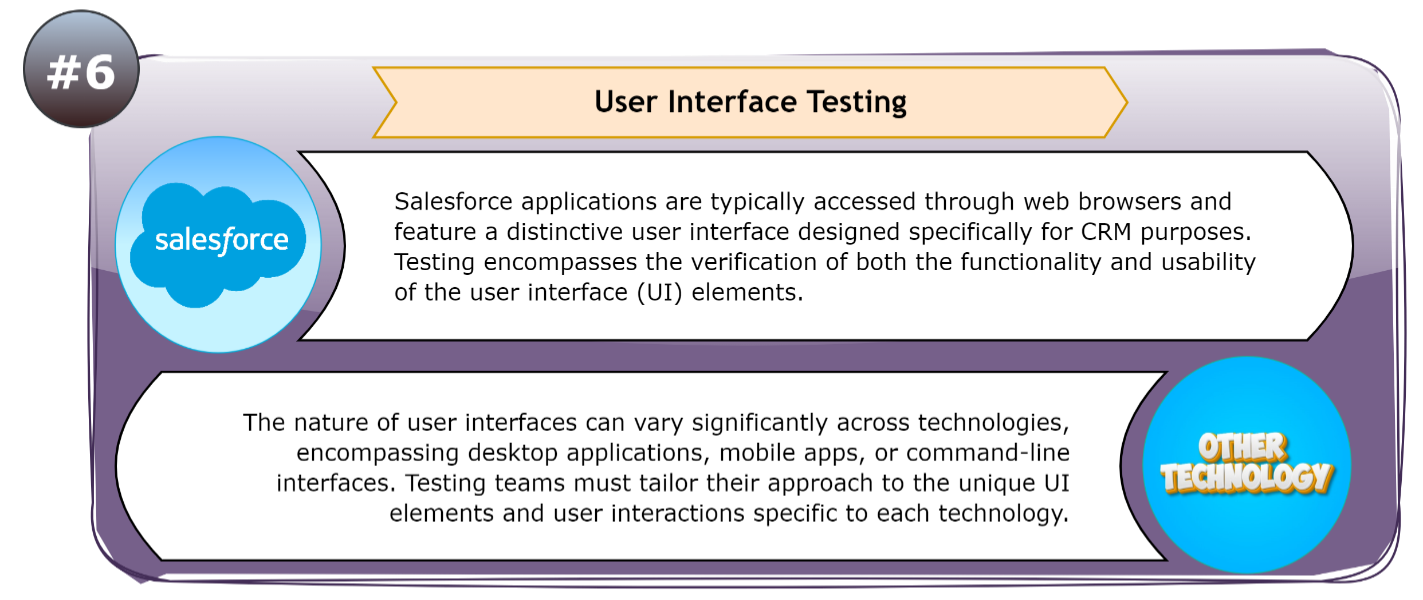
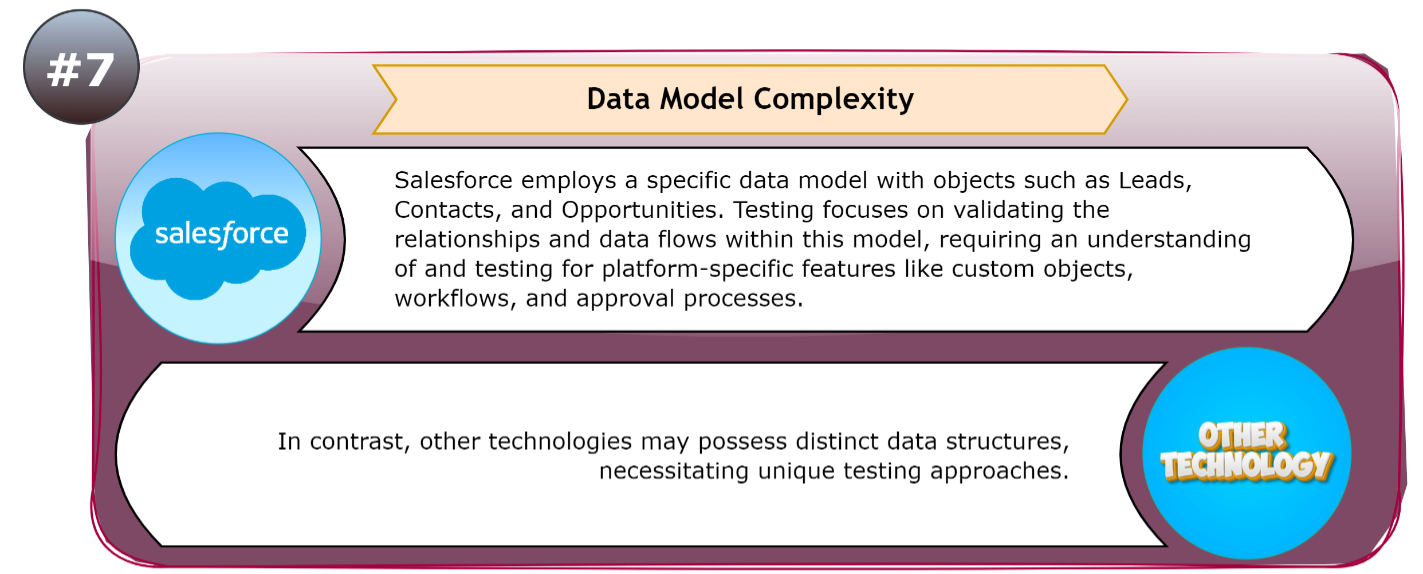
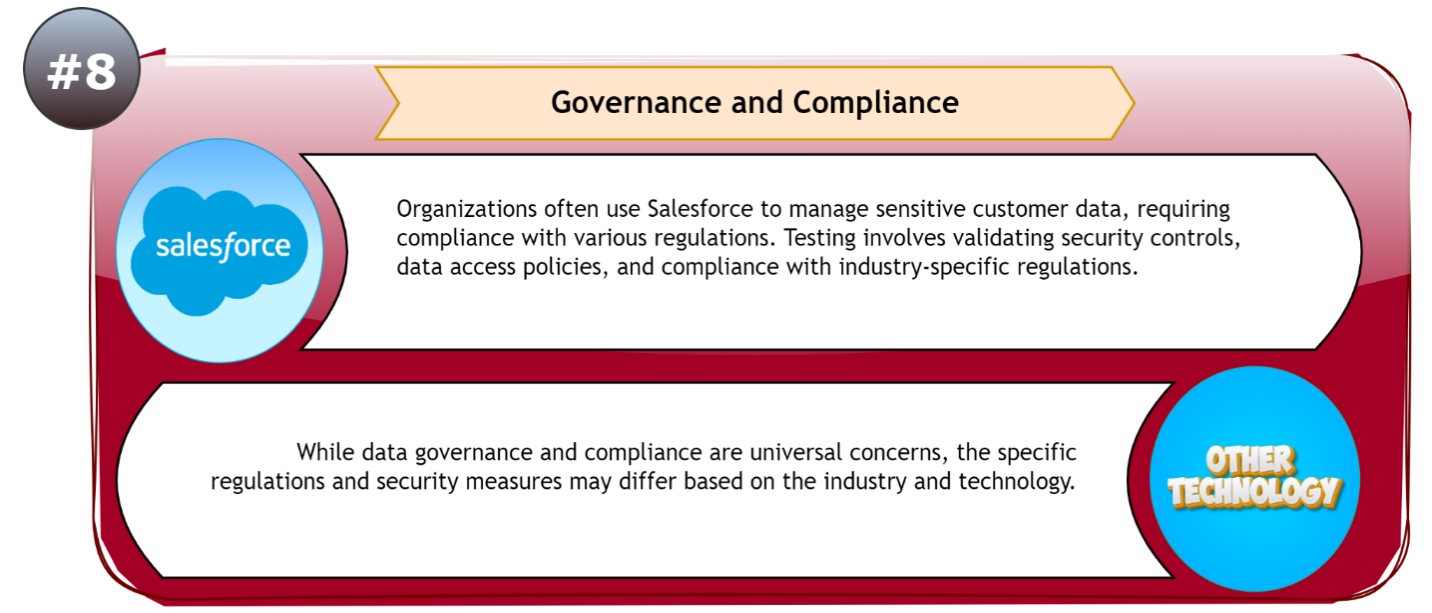
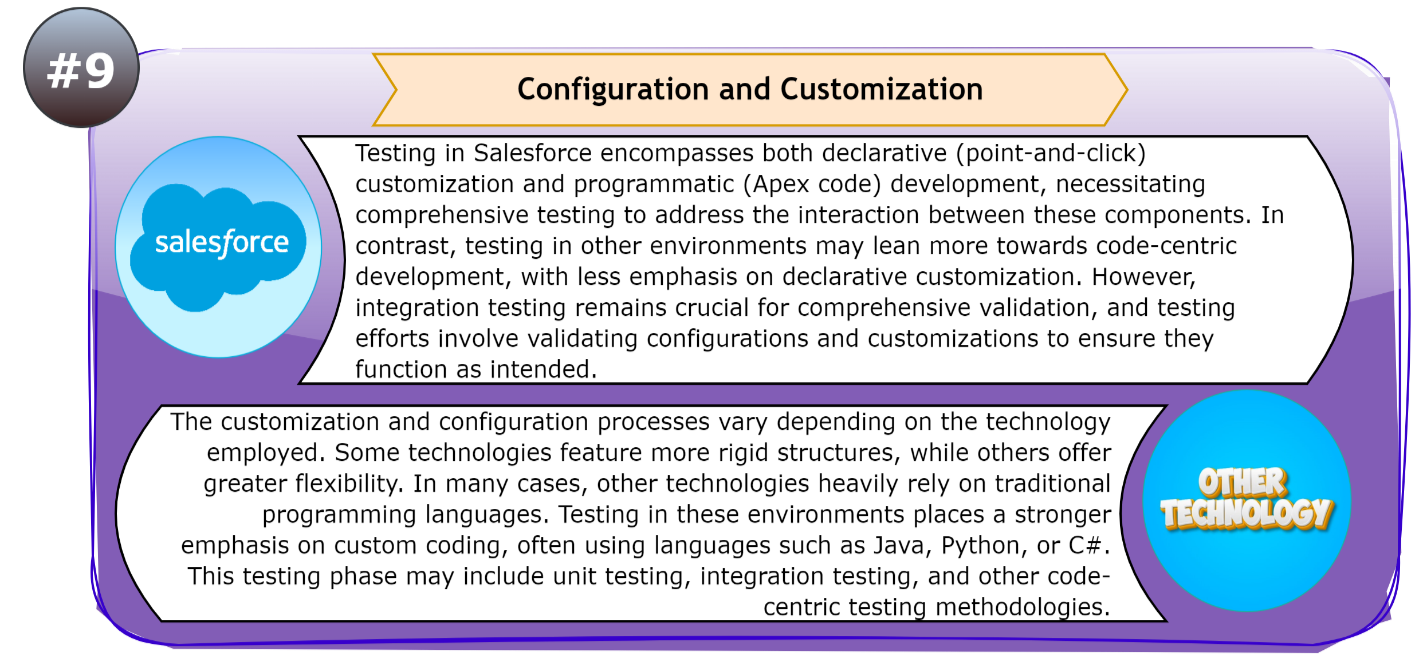
For Your Information…
Declarative Development: Salesforce is known for its declarative capabilities. With point-and-click tools, users may configure the system with Salesforce, thus makes it possible to create security settings, fields, and workflows without writing any code. Verifying these parameters and any possible custom code is a common part of testing in Salesforce.
Programmatic Development: Salesforce uses Apex code for programmatic development, which means that custom code must be tested using unit tests.
Conclusion
In summary, while general testing principles are applicable to a wide range of technologies, Salesforce's particular features—such as its multi-tenancy, continuous releases, and declarative development model—require a customized testing strategy. Understanding the subtleties of Salesforce is essential for an efficient testing approach in this cloud-based CRM platform, even though testing in other technologies has its own set of difficulties.
The capabilities of the Salesforce platform, data models, and release management set it apart from other platforms when it comes to testing. Comparing testing within the Salesforce ecosystem to other more general technologies reveals commonalities as well as unique problems. Although planning, execution, and reporting are consistent fundamental testing principles, the Salesforce platform's unique characteristics necessitate a customized approach.
Salesforce introduces complications that require careful validation because to its declarative capabilities, customizable options, and unique data model. Testing procedures become even more complex due to the requirement to interact with third-party apps and the availability of Apex code and triggers.
Moreover, the frequent release cycles and platform updates in Salesforce require a continuous testing approach to ensure the new changes comply with the built functionality. In contrast to other technologies, testing in Salesforce requires a combination of Salesforce specific knowledge and software testing principles to ensure the reliability, performance, and security of Salesforce implementations.